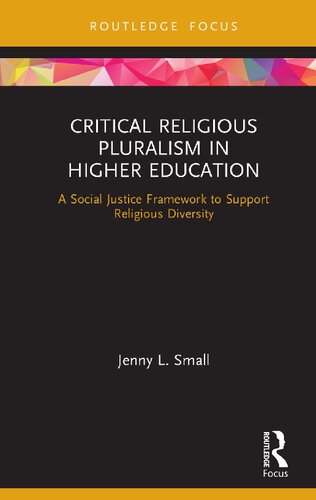

Most ebook files are in PDF format, so you can easily read them using various software such as Foxit Reader or directly on the Google Chrome browser.
Some ebook files are released by publishers in other formats such as .awz, .mobi, .epub, .fb2, etc. You may need to install specific software to read these formats on mobile/PC, such as Calibre.
Please read the tutorial at this link: https://ebookbell.com/faq
We offer FREE conversion to the popular formats you request; however, this may take some time. Therefore, right after payment, please email us, and we will try to provide the service as quickly as possible.
For some exceptional file formats or broken links (if any), please refrain from opening any disputes. Instead, email us first, and we will try to assist within a maximum of 6 hours.
EbookBell Team

4.4
102 reviewsThis text presents a new critical theory addressing religious diversity, Christian religious privilege, and Christian hegemony in the United States. It meets a growing and urgent need in our society―the need to bring together religiously diverse ways of thinking and being in the world, and eventually to transform our society through intentional pluralism.
The primary goal of Critical Religious Pluralism Theory (CRPT) is to acknowledge the central roles of religious privilege, oppression, hegemony, and marginalization in maintaining inequality between Christians and non-Christians (including the nonreligious) in the United States. Following analysis of current literature on religious, secular, and spiritual identities within higher education, and in-depth discussion of critical theories on other identity elements, the text presents seven tenets of CRPT alongside seven practical guidelines for utilizing the theory to combat the very inequalities it exposes. For the first time, a critical theory will address directly the social impacts of religious diversity and its inherent benefits and complications in the United States.
Critical Religious Pluralism in Higher Education will appeal to scholars, researchers, and graduate students in higher education, as well as critical theorists from other disciplines.